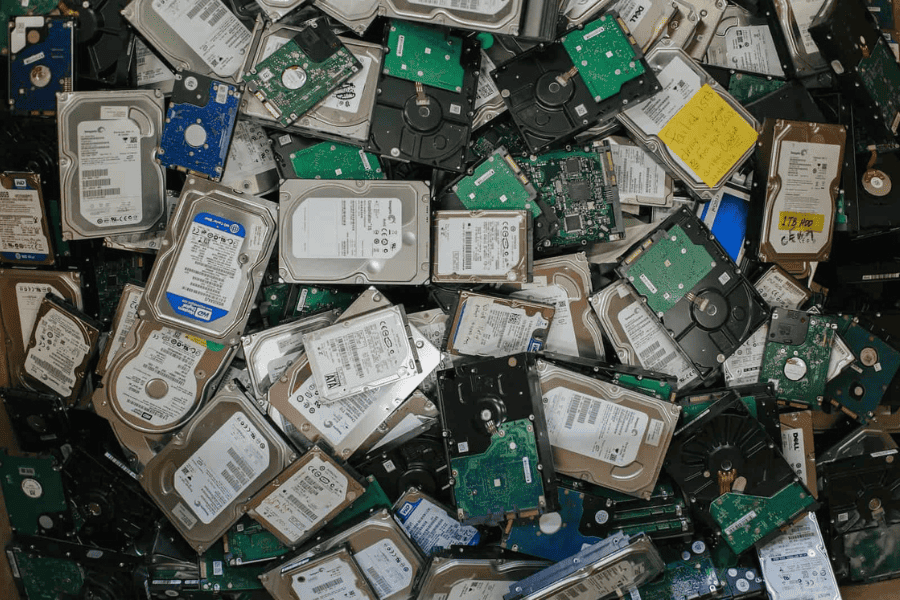“So, how do I know my data is safe when I recycle my electronics with Tech Dump?” It’s one of the most frequent questions we’re asked.
And we’re glad you asked—there have been too many instances where people didn’t research their electronics recycler’s process and their data ended up in the wrong hands. We consider it an honor that over 18,000 customers have trusted us to responsibly and securely recycle their unwanted electronics.
So here’s the scoop on what awaits your gadgets:
When items are given to us at a recycling event, picked up in our box trucks, or dropped off at our warehouse, our team reviews the materials to determine if they can be refurbished, or if they are too old or broken to be reused.
For example, if your hard drive can be reused or refurbished, we follow the NIST standards for removing all data. Our trained team completes a check of all items making sure the wipe, which uses ATA Standards, was successful. If your hard drive can’t be reused, it is sent to a processor where it is shred, coming out in small tiny pieces to then be melted down allowing the gold, platinum, and other materials to be used to create a new gadget.
Tablets? Cell phones? Laptops? All of those data-storing devices are handled by Tech Dump to ensure your precious information remains yours – and only yours.
While we guarantee data will be destroyed through either an electronic wipe or physical destruction, some of our partners require a Certificate of Destruction (also called a COD) for their hard drives. A COD provides a list of each serial number from the drives, and verification of their destruction. There is a charge for this service, so just give us a call to learn more. Our team follows a strict chain of custody, to ensure CODs are completed and sent to our customers promptly after electronic or physical destruction from our hard drive crusher, Spike.
More questions on how we keep your data safe when electronics recycling? Give Tech Dump a call today!
Recent News & Articles

Celebrating Juneteenth

Harnessing the Economic Potential of E-Waste Recycling: A New MN Study

